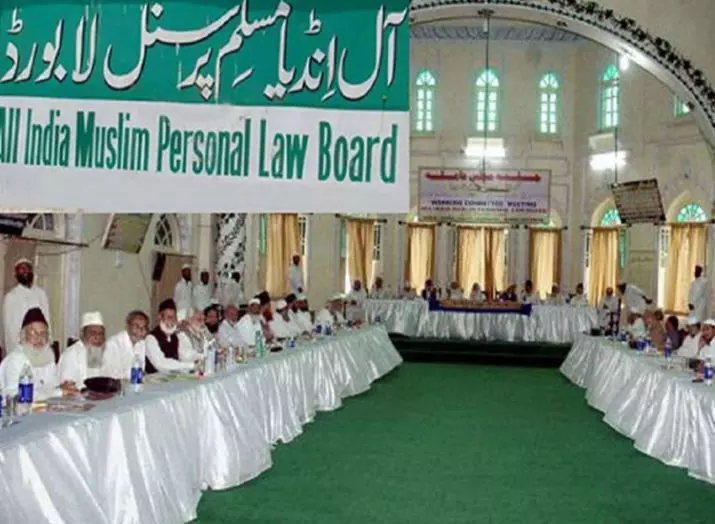
Muslim Personal Law Board joins voice against uniform civil code moves
text_fieldsThe Union government's purported move to introduce a uniform civil code (UCC) has come in for flak from the most predictable of quarters – national Muslim organisations, represented chiefly by the All India Muslim Personal Law Board (AIMPLB).
The government's move has been articulated now through the 22nd Law Commission which recently invited responses to the proposal within a month, including all stake-holders, the public and Muslim organisations.
AIMPLB decried the proposal of the Law Commission calling it an ide 'against the spirit of the Constitution'and 'çontrary to religious freedom enjoyed by all citizens' as reported by the Hindu.
Even earlier the Jamiat Ulama-e-Hind, the largest Muslim religious organisation had expressed its strong disapproval of the UCC idea. The general body meeting of the Jamiat called the proposed code a step against the Fundamental Rights guaranteed in the Constitution.
Arshad Madani, president of the Jamiat highlighted the implied violation of Articles 25 and 26 of the Constitution in UCC and emphasised that as a secular constitution, it does not grant any special status to any religion, but permits the practice of religion according their scriptures by different communities. Madani said according to the Hindu, "In a pluralist society like India, where citizens of all faiths enjoy the right to follow the teachings of their faith, the idea of a UCC is not only surprising but is also used as a guise keeping a particular community in mind".
Jamaat-e-Islami Hind vice president Salim Engineer echoed the same view and added his organisation's voice against the UCC move. He pointed out that It affects not just Muslims but all communities who have their own personal laws, be they Sikhs, Hindus or tribals. "It should not be seen through the lens of the Muslim community but as an attempt which goes against the religious freedom given to everybody by our Constitution. The proposal reeks of a political motive. It is unfortunate that the Law Commission has lent itself to such a move by the government,” the Jamaat’s vice president Salim Engineer told The Hindu.
AIMPLB spokesperson SQR Ilyas drew attention to the likely opposition from the tribal communities also who have their own personal laws that would get erased by UCC. Thus, he said, the matter goes beyond the purview of minorities. He also drew attention to Articles 371(A) and 371(G) of the Constitution that contain special provisions which bar protection to the customs and traditions of the people of northeast by barring the parliament from enacting laws that supersede their family laws. Ilyas appealed to the government to respect religious freedom and desist from efforts to curtail it.
The 21st Law Commission had mooted the idea, but could not come up with concrete steps to reach conclusions on the matter. The current, 22nd Commission came into existence in February 2020 and its term is to expire in February 2023, but the government recently extended its term until August 2024. The chairman of the Commission is former Karnataka High Court Chief Justice Rituraj Awasthi.
Critics and observers have pointed out that the government and the ruling party the BJP aim at mobilising votes against minorities by portraying Muslims as a community enjoying special privileges such as their own civil code and keep the issue live in the build-up for the 2024 election. The government on the other hand argue that UC is a part of the Directive Principles of the Constitution and those who oppose it are speaking against the Constitution in order to please the vote bank.

























